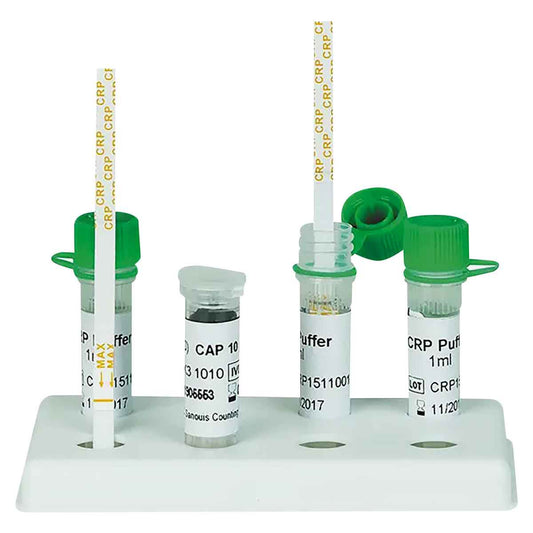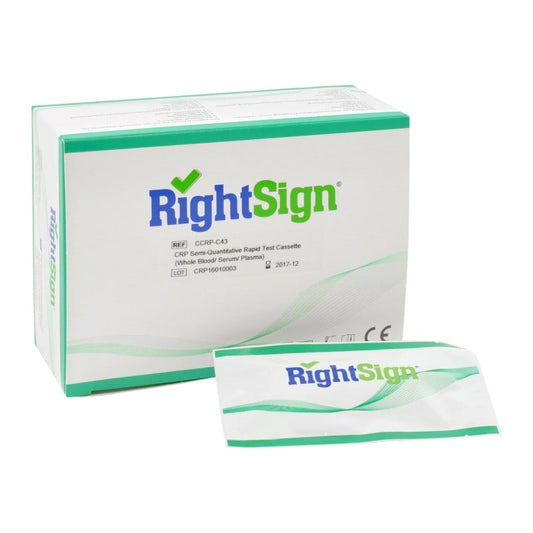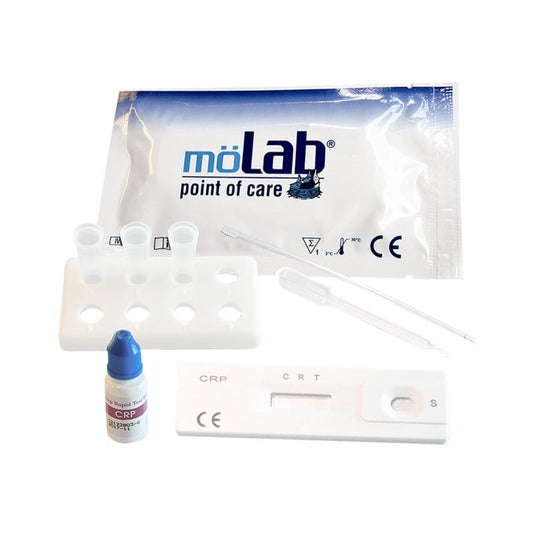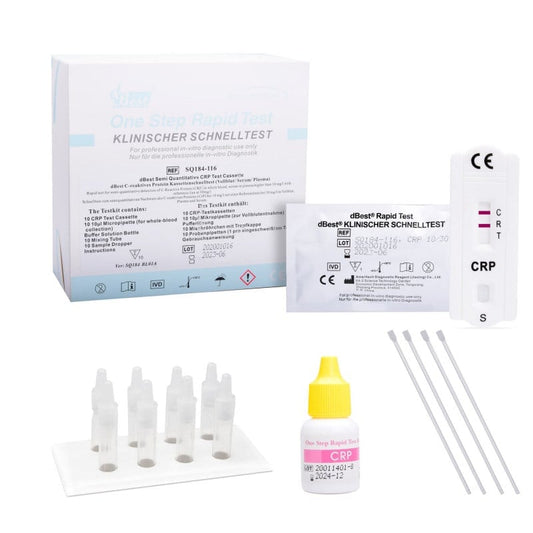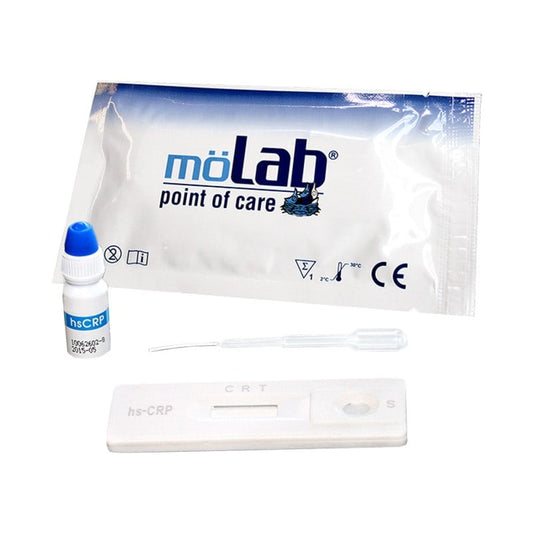Collection: CRP Tests
Point-of-care (POC) C-reactive protein (CRP) testing refers to performing a CRP test at or near the patient's location, such as in a clinic, emergency room, or even at the patient's bedside, using portable devices or rapid test kits. This allows healthcare providers to obtain quick results without sending samples to a lab.
What is a CRP Test?
A C-reactive protein (CRP) test measures the level of CRP, a protein produced by the liver in response to inflammation. CRP levels increase in the blood when there is inflammation, infection, or tissue injury in the body. This test is often used to:
- Detect infections, particularly bacterial infections.
- Monitor chronic inflammatory conditions like rheumatoid arthritis or inflammatory bowel disease.
- Assess heart disease risk, as higher levels of CRP are associated with an increased risk of heart attacks.
Benefits of POC CRP Testing:
Rapid Results: POC CRP tests can provide results within minutes (often 5–15 minutes), allowing for quick decision-making, particularly in urgent care settings. This is crucial for diagnosing infections, assessing disease severity, or monitoring treatment responses.
Improved Clinical Decision-Making: By quickly measuring CRP levels, healthcare providers can better distinguish between bacterial and viral infections. This helps guide appropriate treatment (e.g., whether antibiotics are necessary) and reduce unnecessary antibiotic use, which is important for combating antibiotic resistance.
Overall, POC CRP testing provides a faster, more accessible, and efficient means of measuring inflammation, leading to improved patient outcomes and more efficient healthcare delivery.
-
Servoprax Clear test CRP 10/40/80 Rapid 20 Tests
Regular price £87.76 GBPRegular priceUnit price / per -
Right Sign semi-quantitative CrP-Test, 25 Tests
Regular price £94.10 GBPRegular priceUnit price / per£0.00 GBPSale price £94.10 GBP -
Actim CRP Test 20 Test Strips
Regular price £143.28 GBPRegular priceUnit price / per£0.00 GBPSale price £143.28 GBP -
möLab CRP Rapid 10 Tests
Regular price £99.65 GBPRegular priceUnit price / per£0.00 GBPSale price £99.65 GBP -
dBest CRP Rapid 10 Tests
Regular price £81.98 GBPRegular priceUnit price / per£0.00 GBPSale price £81.98 GBP -
möLab hs-CRP 10 Tests
Regular price £102.85 GBPRegular priceUnit price / per£0.00 GBPSale price £102.85 GBP

